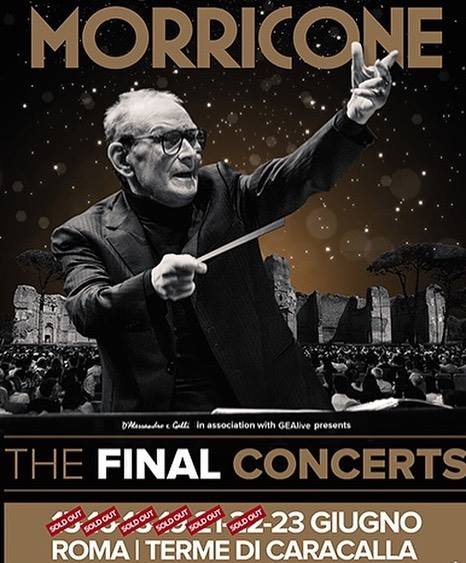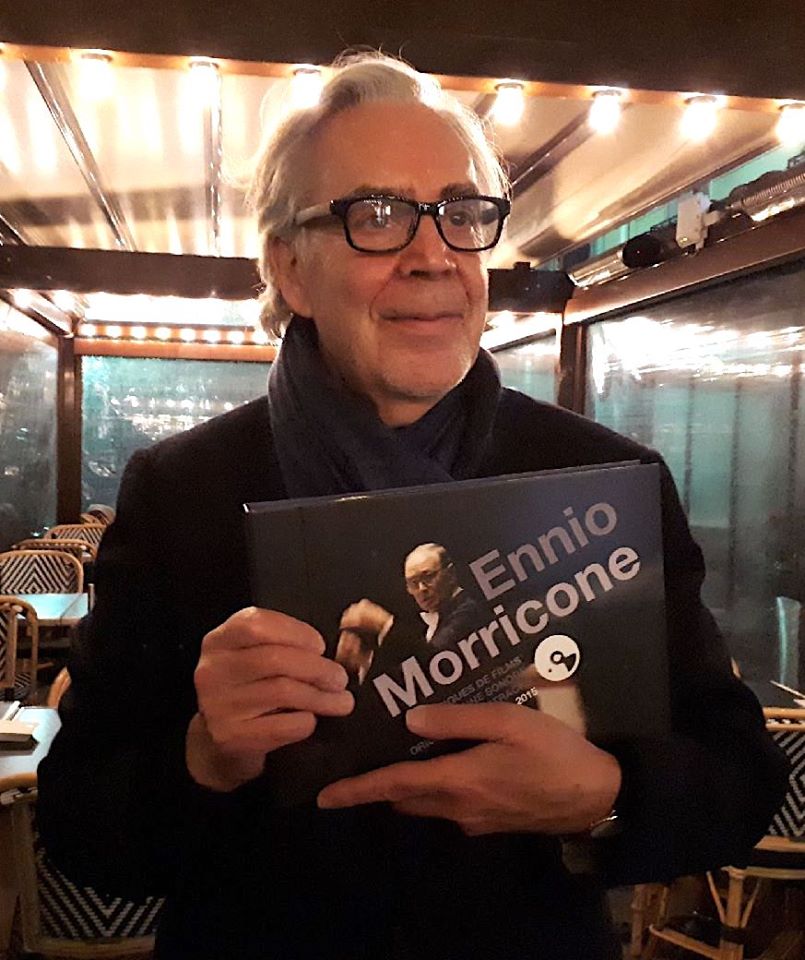
By Ann Marie Foley - 08 July, 2020

Tributes have been paid to the Italian composer of the score for The Mission, Ennio Morricone, who died on Monday, 6 July 2020, in Rome at the age of 91.
Irish singer Liam Lawton stated in a tweet that his music can express something so well that no words are needed. “What a gift Ennio Morricone had. He left the world a legacy of rare beauty that far will outlive the man. How such melodies can be born in the human heart is beyond me, but I am grateful that I can share in such a gift from God. Thank you Ennio Morricone.”
Marty Whelan of RTE Lyric FM Radio station said the he felt: “a real sense of loss. His music is an essential part of LyricFM mornings.”
Marty Whelan had interviewed the composer before his last concert in Ireland in 2019. Many of the presenters on the radio station played his music frequently.
The Dublin Gospel Choir (DGC) director Orla Gargan recalled his visit to Ireland in 2013 when 100 choir members performed with him at the Royal Hospital Kilmainham. At final rehearsals he listened carefully and simply said ‘grazi’ (thank you) she told the Irish Independent.
In a statement DGC said: “Memories of lifetime for so many singers who had the opportunity to sing at Maestro Ennio Morricone’s concerts in Dublin over the years. Such incredible music and an unbelievable privilege to be on stage and immersed in the magic of it. His music means so much to so many people. RIP Maestro. Thank you for the music.”
The late composer came to prominence in Ireland with the release of the film The Mission in 1986. It featured Irish actors including Ray McAnally, who portrayed a cardinal caught in a crisis of conscience as well as Liam Neeson, Jeremy Irons, and Aidan Quinn.
The film is based on historical events and their threat to a Jesuit mission among the indigenous Guaraní people in Paraguay. Their lands were transferred between Spain and Portugal and these European nations wanted to exploit the riches of the land that these local people farmed. The climax comes when the Guaraní attempt to defend their homes and lands against the well-armed soldiers sent in to take the land.
The main character, Fr Gabriel, is loosely based on the life of a Jesuit from Paraguay, Roque González de Santa Cruz, who became a saint. Jesuit Fr CJ McNaspy wrote about this period in his book The Lost Cities of Paraguay and was a consultant on the film.
 The Mission soundtrack included the famous Gabriel’s Oboe, and reaches a crescendo with a large choir of indigenous people singing Ave Maria. It won many awards such as the Palme d’Or and at the Academy Awards. In 2007, it was number one on the Church Times’ Top 50 Religious Films list. It is also among the fifteen films listed in the category “Religion” on the Vatican film list.
The Mission soundtrack included the famous Gabriel’s Oboe, and reaches a crescendo with a large choir of indigenous people singing Ave Maria. It won many awards such as the Palme d’Or and at the Academy Awards. In 2007, it was number one on the Church Times’ Top 50 Religious Films list. It is also among the fifteen films listed in the category “Religion” on the Vatican film list.
This week at the Vatican the President of the Pontifical Council for Culture, Cardinal Gianfranco Ravasi, also paid tribute to Ennio Morricone. The Cardinal said he would remember the composer firstly from his time in Poland preparing an Oratory for Pope St John Paul II and secondly when he received the Pontifical Gold Medal for his musical work.
“These two moments testify to what he has always attested: his faith,” said the Cardinal who added that there was always a religious and spiritual dimension to the composer’s music, whether he was scoring a film like The Mission or a western.
The Cardinal said that in The Mission the musical commentary is of a religious nature and illustrates the theme of the film.
“That is why I believe that we should all be grateful to Ennio Morricone, believers and non-believers alike, but above all the believers to whom he belonged, for having been able to express the ineffable and the invisible at the same time, which are the soul of religion,” said Cardinal Ravasi.
The deceased composer was responsible for more than 500 film scores, including The Untouchables, and Cinema Paradiso.